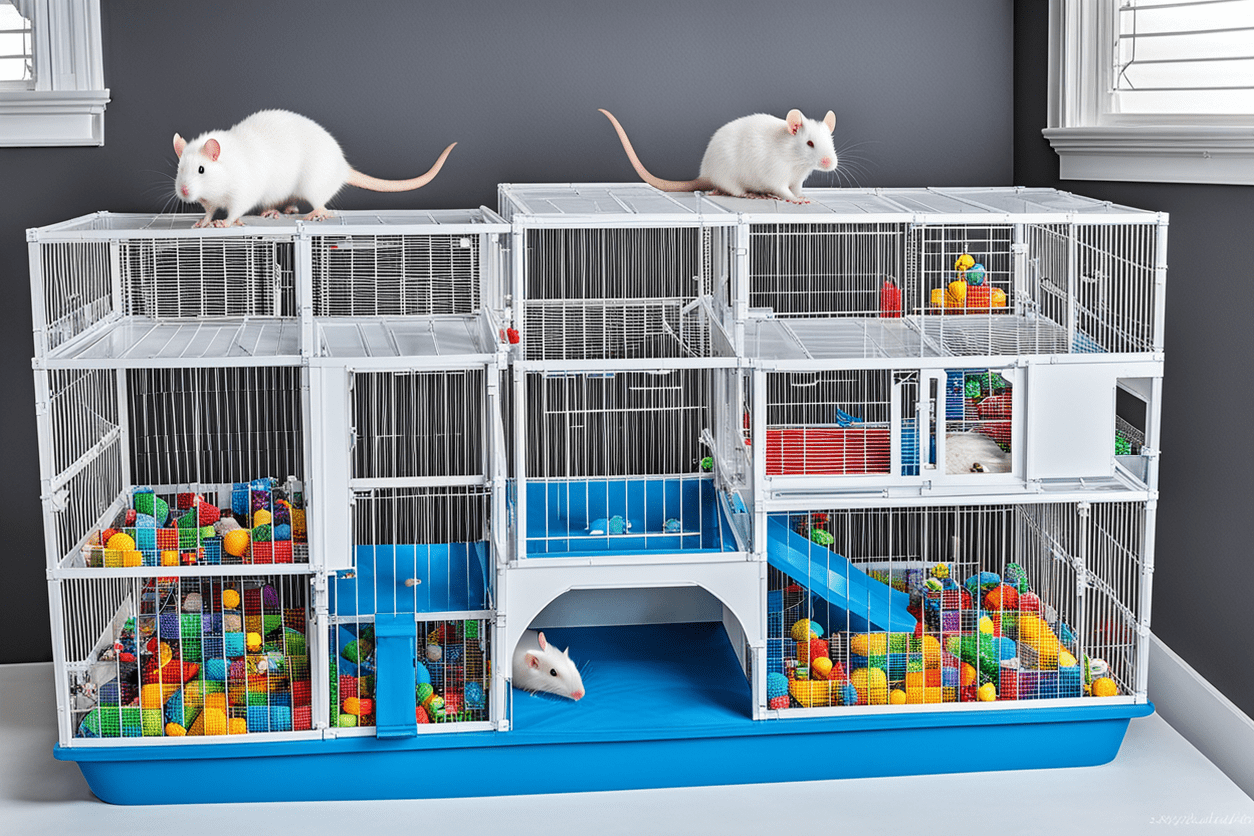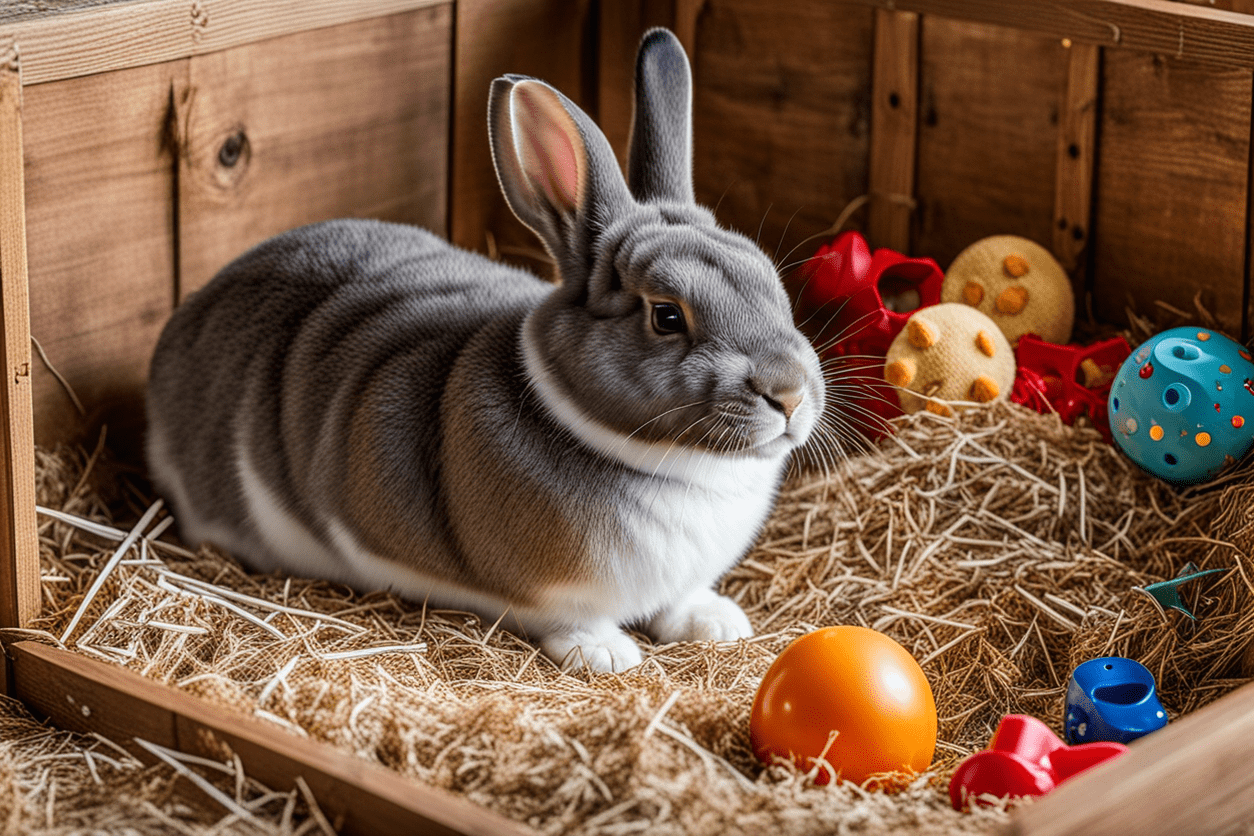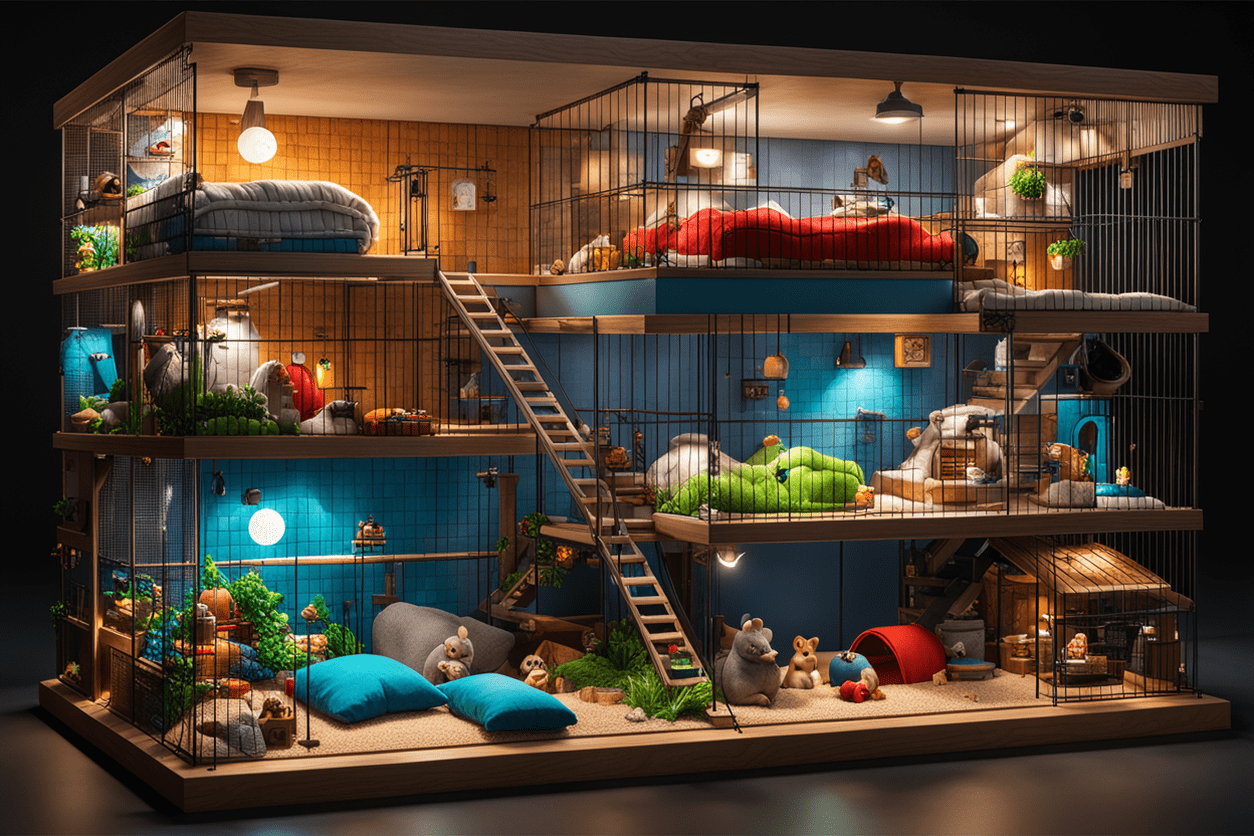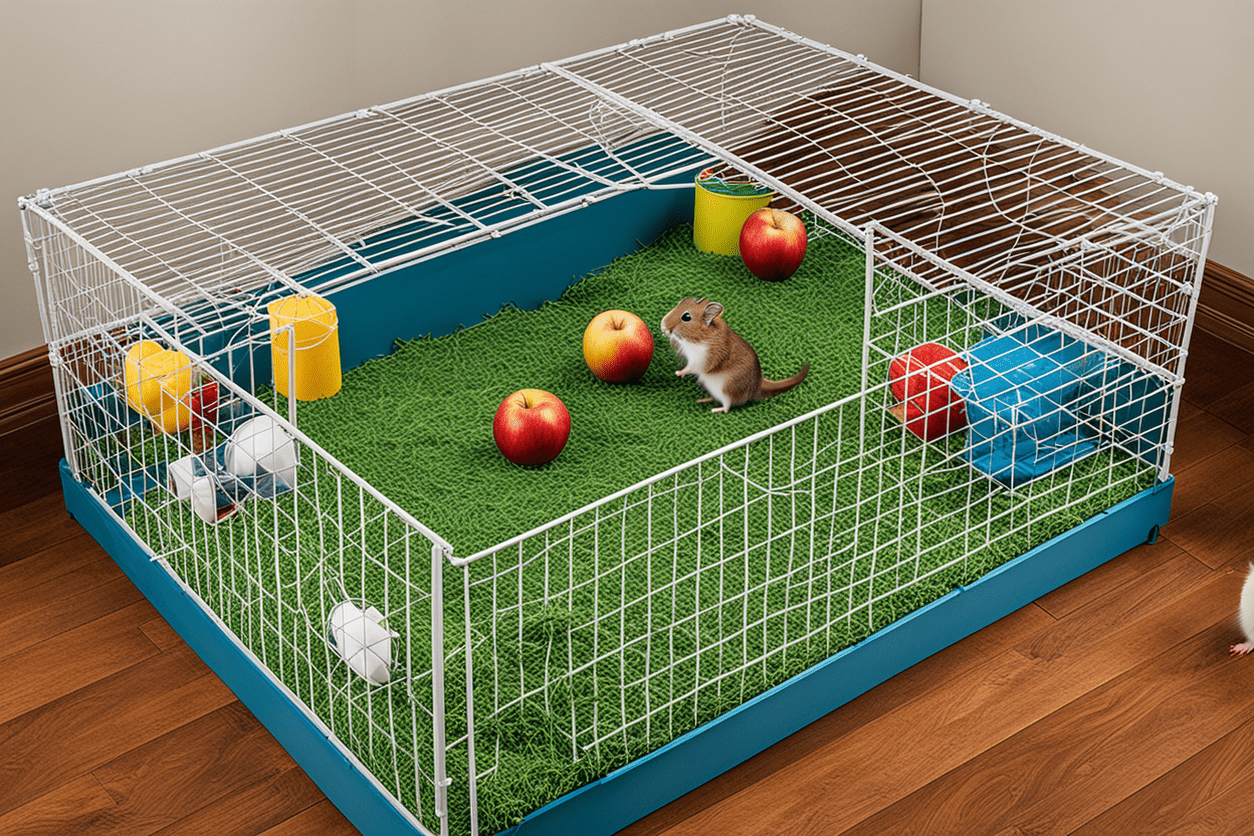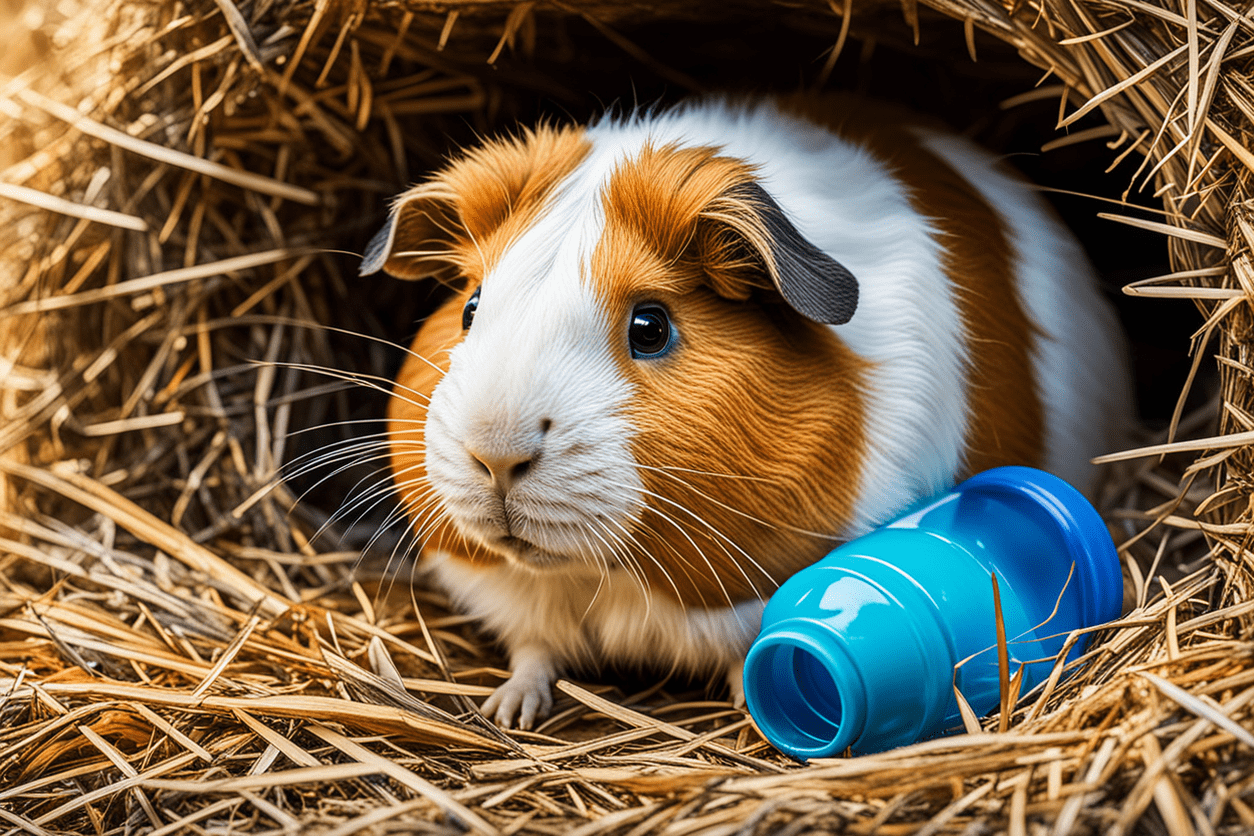How to Set Up the Perfect Habitat for Your Gerbil
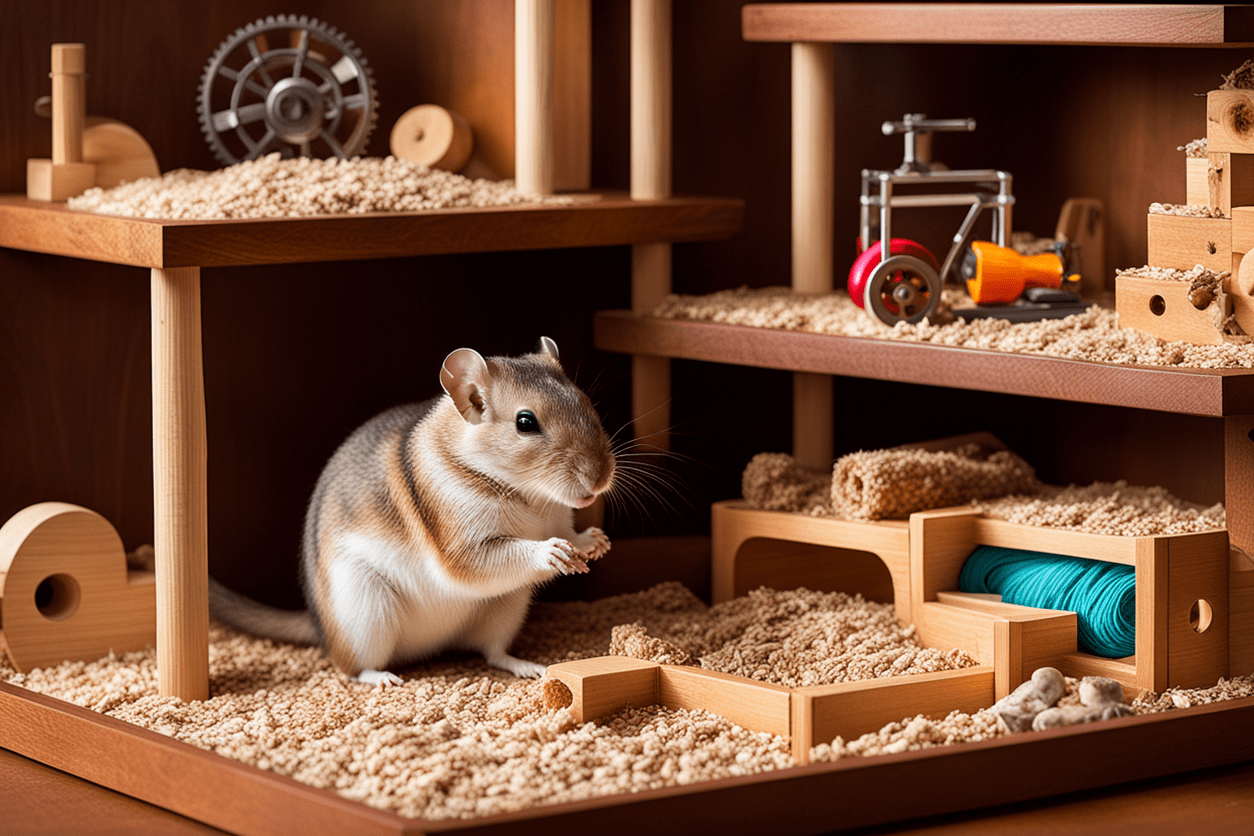
Introduction
Setting up the perfect habitat for your gerbil is crucial to ensuring their happiness and well-being. These small, energetic creatures require a space that not only meets their basic needs but also enriches their lives. If you're new to gerbil ownership or looking to upgrade your furry friend's living situation, stick around. We'll cover everything you need to create a comfortable, engaging, and safe home for your gerbil.
Choosing the Right Enclosure
Type of Cage
The type of enclosure you choose for your gerbil matters significantly. While wire cages are common, they may not be ideal as gerbils tend to kick out bedding. A glass or plastic tank with a secure mesh lid is a better option. Tanks also offer better visibility and security, and they provide ample space for digging—a favorite gerbil activity.
Size Matters
Gerbils are active and social animals. A minimum of a 20-gallon tank is recommended for a pair. Larger tanks are even better, offering more room to explore and play. Ensure the enclosure provides at least 12 inches in height so you can add a good amount of bedding for burrowing.
Bedding and Substrate
Choosing the Right Material
Not all bedding materials are suitable for gerbils. Avoid cedar and pine shavings as they can be harmful to their respiratory systems. Opt for aspen shavings, paper-based bedding, or hemp. These are safe, absorbent, and good for burrowing.
Depth of Bedding
Gerbils are natural diggers, so providing a deep layer of bedding is key. Aim for at least six inches of bedding to give your gerbils plenty of room to tunnel and create nests.
Essential Habitat Accessories
Nesting and Hiding
Gerbils need places to hide and feel safe. Provide a small wooden house or cardboard boxes for them to nest in. They will love chewing through these materials to create a cozy nest.
Exercise Wheel
An exercise wheel is essential to keep your gerbil active. Ensure the wheel is solid to prevent their tiny feet from getting caught. A diameter of around 8 inches is suitable for most gerbils.
Chew Toys
Gerbils' teeth never stop growing, so they need chew toys to wear them down. Wooden toys, cardboard tubes, and chew sticks are excellent options. These will also keep them entertained and stimulated.
Food and Water
Food Dishes
Use a shallow, heavy ceramic dish for food to prevent tipping. Scatter some of the food around to encourage foraging, stimulating natural behaviors.
Water Bottles
A water bottle with a sipper tube is better than a water dish, as it keeps the water clean. Make sure the bottle is securely attached and test the flow to ensure it's working properly.
Enclosure Placement
Location
Place the gerbil habitat in a quiet area, away from direct sunlight and drafts. Make sure it's also out of reach of other pets that might stress them out.
Room Temperature
Maintain a room temperature between 65 to 75 degrees Fahrenheit. Avoid placing the habitat near heaters or air conditioners, as sudden temperature changes can be harmful.
Maintenance and Cleaning
Regular Cleaning
Clean the gerbil enclosure at least once a week. Remove soiled bedding, wipe down the tank, and replace with fresh bedding. However, avoid complete overhauls too frequently, as gerbils rely on scent markings to feel secure.
Spot Cleaning
Perform spot cleaning every few days by removing waste and uneaten food. This will help keep the habitat fresh and reduce odor.
Enrichment and Interaction
Socialization
Gerbils are social animals, so spend time interacting with them daily. Use treats to encourage them to come to your hand and gradually build trust.
Enrichment Activities
Rotate toys and introduce new items regularly to keep their environment stimulating. Puzzle toys, cardboard castles, and tunnels can all add variety to their habitat.
Conclusion
Creating the perfect habitat for your gerbil requires attention to detail and a little preparation. By choosing the right enclosure, providing plenty of bedding, and including essential accessories, you'll ensure your gerbil lives a happy and healthy life. Regular maintenance and social interaction will keep your furry friend active and engaged, making the effort well worth it.

